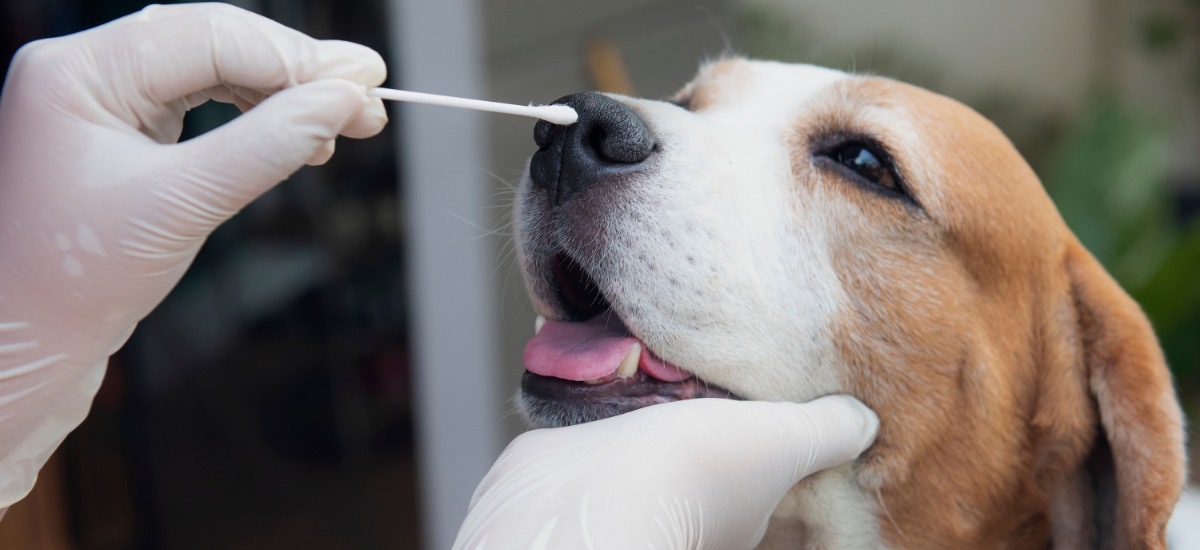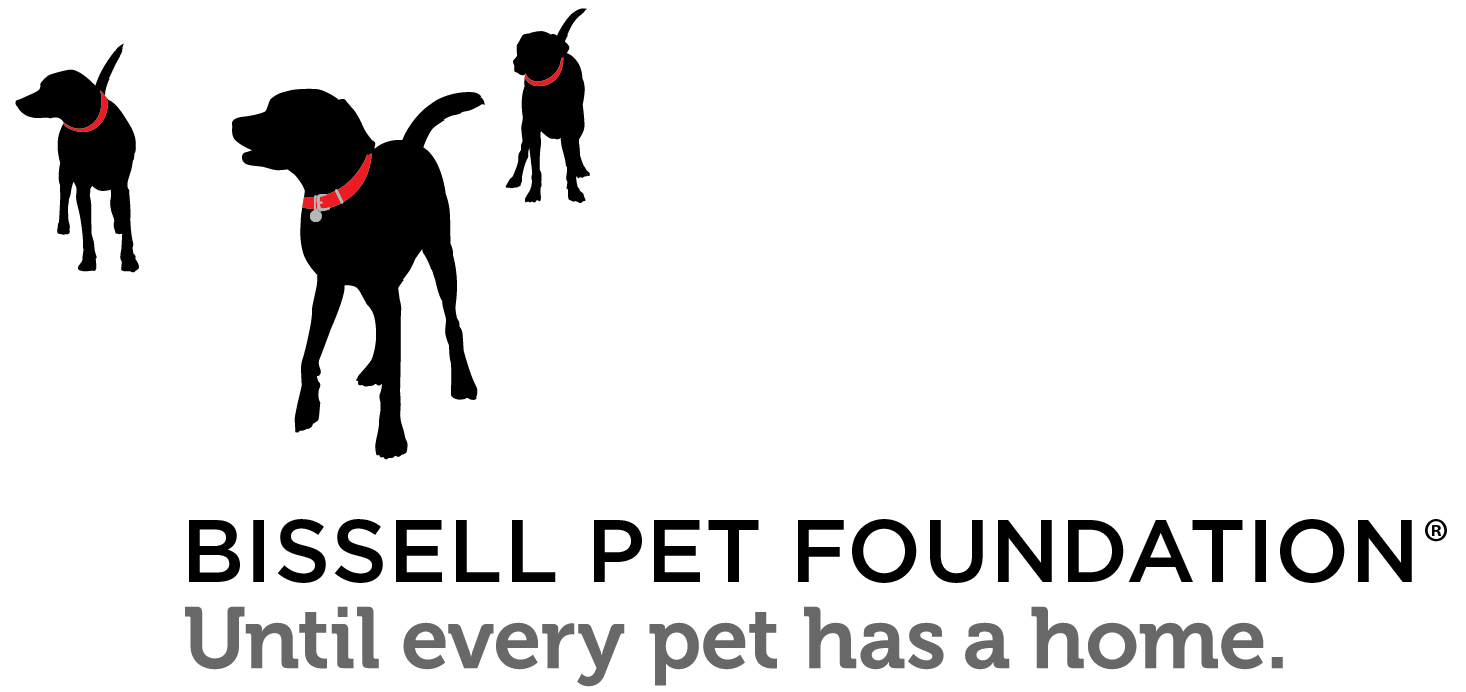What dog guardians need to know about canine influenza

Read the latest on how our dogs are staying are staying active and engaged with our staff while recovering from flu symptoms.
UPDATE: We have revised this post, originally published June 21, after receiving positive test results for dogs in our care on June 23.
Local reports about the presence of canine influenza in our community may leave you with questions about this virus whether you’re preparing to adopt or have dogs at home. The Richmond SPCA is exercising caution while continuing our operations and want you to be well informed.
While the virus spreads easily, it thankfully is one from which most dogs recover after mild illness.
What is canine influenza?
Two canine influenza (known as dog flu) Type A viruses are known to infect dogs. The strain that has been identified in Richmond is H3N2. This is different from the seasonal influenza A(H3N2) viruses that spread in people. There is no evidence of canine influenza infection spreading from dogs to people.
The virus typically causes mild to moderate symptoms from which most dogs will recover within two to three weeks. Some dogs may develop secondary infections leading to more severe illness or pneumonia, but this is much less common.
How is the Richmond SPCA impacted?
The Richmond SPCA transferred three dogs from Richmond Animal Care & Control in the week before canine influenza was reported at that shelter. Since learning of confirmed H3N2 cases, we have quarantined those dogs and taken additional precautions across our operation to best protect the health and welfare of the pets in our care and those belonging to the public.
What is being done?
We tested the dogs we transferred from RACC for canine influenza, and we continue to perform testing based on our veterinarian’s guidance. Each test takes between five and seven days to receive results. In the meantime:
- Our entire dog population is being monitored for symptoms.
- Dogs who have tested positive for H3N2 are being isolated as are any dogs in our care with signs of respiratory illness.
- Supportive care is being delivered along with any additional medical treatment that is needed to treat respiratory illness and secondary infection.
- We are further limiting interactions between dogs and modifying our cleaning protocols.
Most importantly, we are continuing our lifesaving mission and delivering our programs and services to our community and the people and animals who need us. That includes placing animals in lasting, loving homes. Dogs whom our veterinary team has cleared for adoption have neither been exposed to nor exhibited signs of respiratory illness.
What are the symptoms?
While not all dogs show signs of illness (asymptomatic infections) the common symptoms include
- Cough
- Fever
- Runny eyes or nose
- Shortness of breath
- Hard swallowing or excessive throat clearing
- Lethargy
- Decreased appetite and water consumption
Dogs whose health is vulnerable due to advanced age or suppressed immunity may face additional risk. Their guardians should speak with their own veterinarian to understand their dog’s risk and additional precautions that may be needed.
How is the virus spread?
Dog to dog contact is the most common way the canine influenza virus spreads. It is passed through respiratory droplets – from infected dogs coughing and sneezing – or through contact with contaminated surfaces. The virus can remain on surfaces for 24 to 48 hours.
Precautions you can take:
- Avoid contact with other dogs.
- Avoid areas where dogs congregate.
- Keep your distance (6 feet) from other dogs while on walks.
Consult your veterinarian if your dog shows any symptoms.
Unless vaccinated, most dogs in our community have not been exposed to canine influenza. They lack immunity and are susceptible to infection. Your veterinarian can also provide information about vaccination against canine flu.
What are the risks to cats?
While transmission of H3N2 canine influenza from dogs to cats is not impossible, it is highly unlikely. There is a similar possibility of cats getting the human seasonal flu virus from people. If you are introducing a new dog into your home with other resident pets, you should be aware of and assess your level of comfort with that risk.
Sources
Centers for Disease Control and Prevention: “Canine Flu Questions and Answers”
American Veterinary Medical Association: “Canine Influenza FAQ”



